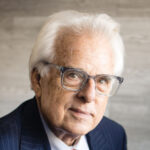This is an important issue that has generally been ignored in the popular media about assisted suicide and the practice of doctors refusing wanted life-sustaining treatment. Physicians who legally cooperate in patient suicides or who refuse wanted care have almost absolute protection from lawsuits and criminal culpability, while their colleagues who provide medical end-of-life treatment face can be held liable if they violate the usual legal “standard of care.”
Thus, S.B. 303 in Texas this year — which I helped defeat — would have granted virtually absolute immunity for doctors who imposed a “do not attempt resuscitation” (DNAR) order on the patient’s chart without consent. Laws allowing doctors to assisted suicide in Oregon, Washington, and Vermont provide almost absolute protection for doctors prescribing lethal overdoses to dying patients. Ditto most proposals to permit the imposition of futile care theory, in which doctors refuse wanted and physiologically efficacious life-sustaining treatment.
The futilitarian and law professor, Thaddeus Mason Pope, wants more immunity for doctors on the side of death. Why? Apparently because centralized bureaucratic control over healthcare — increasingly the bane of American medicine — necessitates that course.
In support of this supposition, Pope quotes a European Court of Human Rights case involving midwives as his illustration. From Pope’s post, “POLST: Need for Statutory Immunity” (my emphasis:)
[T]he background assumption of classical liberalism does not necessarily work in the contemporary welfare State, especially in the medical environment. In this welfare system practically everything is regulated; regulation is the default, and only what is regulated is considered safe and acceptable. Suddenly, in the absence of positive regulation, what was a matter of uncontested private choice becomes unusual and uncertain. In a very densely regulated world some disadvantages emerge for freedoms without regulatory endorsement. . . .
Where regulation is the default, as in the medical context, lack of enabling regulation may be detrimental to the exercise of the right, and traditional non-interference will not be sufficient. This may be one of the many unpleasant consequences of living in an overregulated world. It is here that an affirmation of a liberty in positive law is warranted. . . . [A] freedom may necessitate a positive regulatory environment which will produce the legal certainty providing the right to choose with effectiveness. Without such legal certainty there is fear and secrecy . . . .
There is no reason why a doctor that facilitates suicide or imposes his or her values about dying on patients deserve greater legal protection than doctors who provide life-sustaining or palliative medical treatment. Indeed, granting legal immunity to those engaging in the former could promote death-over-caring decision making.
On the broader note discussed by the European Court: Think Obamacare and the ubiquitous regulation it will impose if permitted to continue on its current course.
It is also germane to the issue of medical conscience: If people have a “right” to abortion or assisted suicide, interference with that “positive” right by refusing to participate or refer based on the professional’s conscience simply will not be permitted.
Author Profile

Latest entries
- BlogJanuary 27, 2015Ready or Not: Here Comes 2015 in Bioethics!
- BlogOctober 20, 2014A Case of Surrogacy’s Gordian Knot
 BlogAugust 19, 2014Transhumanism’s Eugenic Authoritarianism
BlogAugust 19, 2014Transhumanism’s Eugenic Authoritarianism- BlogAugust 13, 2014Suicide Cult Pushes Home Made Suicide Kits

